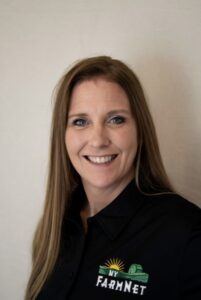Financial Stress
Financial Stress
Stress is part of life. No matter who you are or where you live, you will face stress of some kind. We naturally conclude that all stress is negative and thus, bad. When in fact, some stress can be positive and can push us to perform better and achieve more.
Farming adds additional stress due to the very nature of the industry. There are many unpredictable and uncontrollable factors (weather, supply shifts, volatile milk/commodity prices, etc.). These factors can and do greatly affect the finances of the business and the family.
Financial stress and uncertainties are among the leading causes of breakdowns in relationships and farmers are not exempt. In fact, I would argue that farming brings more financial uncertainty than many other careers. Thus, it has the potential to lead to higher levels of financial stress and anxiety in farm families.
As we think about financial stress, I want us to think about Controllable Factors vs. Uncontrollable Factors. What I mean by this is that there are times when our financial stress is caused by our lack of a budget and/or poor money management decisions (controllable factors) while other times, our financial stress is caused by factors that are outside our ability to control such as a divorce, job loss, medical debt, catastrophic event, etc.
The approach I like to take is to assess the situation, accept its reality and then develop a plan to gain financial freedom.
Assess
The first step in reducing the strain of financial stress is to assess your current financial situation. If we are able to identify the areas of financial stress, we will have a better chance knowing how to plan and handle the financial situation. Confront reality head on!
What is causing your financial stress? If you have never made a budget – now is the time. This can be a quick and easy one. List every expense, bill, and debt that you have. Your last three months bank statements will help you with this. (Don’t forget food, insurances and fun money/recreation- include everything).
Then list all sources of income. Income minus expenses is your excess money each month. This exercise will give you a snapshot of your financial situation. There are also plenty of free budgeting resources online that will help you through the process of gathering all the needed information.
Accept
The second step is to accept your financial situation for what it is. Regardless of how bleak it may be – people dig out of debt and correct their finances every year. It is doable. In some extreme cases bankruptcy may be the only solution – but this is not the norm. Many households can change the course of their finances in a very short time by making a few changes. Small steps are BIG!
Plan
The third step is to develop a plan. Planning creates control over something that is going to change anyway. To reduce stress over finances it helps to have a well-defined plan. Without a plan when the financial crises come, we are forced into crisis planning which is the worst form of planning there is as we are under tremendous pressure and stress. Most of us don’t make good, wise choices in this state.
So how do you develop a well-defined plan? Identify what needs the most attention. List 3 of the biggest money challenges you are facing. (Consumer debt, student loans, child support, housing expenses, etc).
How can you tackle each of these 3 challenges?
- Make and keep a household budget – don’t forget recreation/fun things.
- Be realistic – know your income vs. expenses. It didn’t take you a few months to get where you are – it won’t be a few months to get out. Some plans will involve 2, 5 or 10 years to gain financial freedom.
- Make the most of your income. (Find ways to be thrifty, cut expenses and make your money go farther.)
- Ask yourself before each purchase – want or need?
- Pay off all consumer debt.
- Save monthly.
- Make a timeline to financial freedom.
Stay Positive —- Small steps are BIG!!!

Brenda O'Brien
Brenda O’Brien was born and raised on a large dairy farm in Central New York. She worked side by side with her father and learned about farm finances. While she was earning a Bachelor’s in Economics and Management from the State University of New York at Cortland, she began managing the farm finances, human relations, and herd management aspects of the farm business. She later moved to Northern Virginia where she worked for the United State Department of Agriculture and then for Maryland & Virginia Milk Cooperative. Brenda continued her education, earning her Master’s degree in Counseling, which has proven to be invaluable with her work for more than 25 years in her church community and adult education. She is a trained facilitator in both Youth and Adult Mental Health First Aid. With her lifelong experience in agriculture, working on the family farm, and caring for her five children, Brenda brings a unique and valuable perspective to upstate NY farmers.